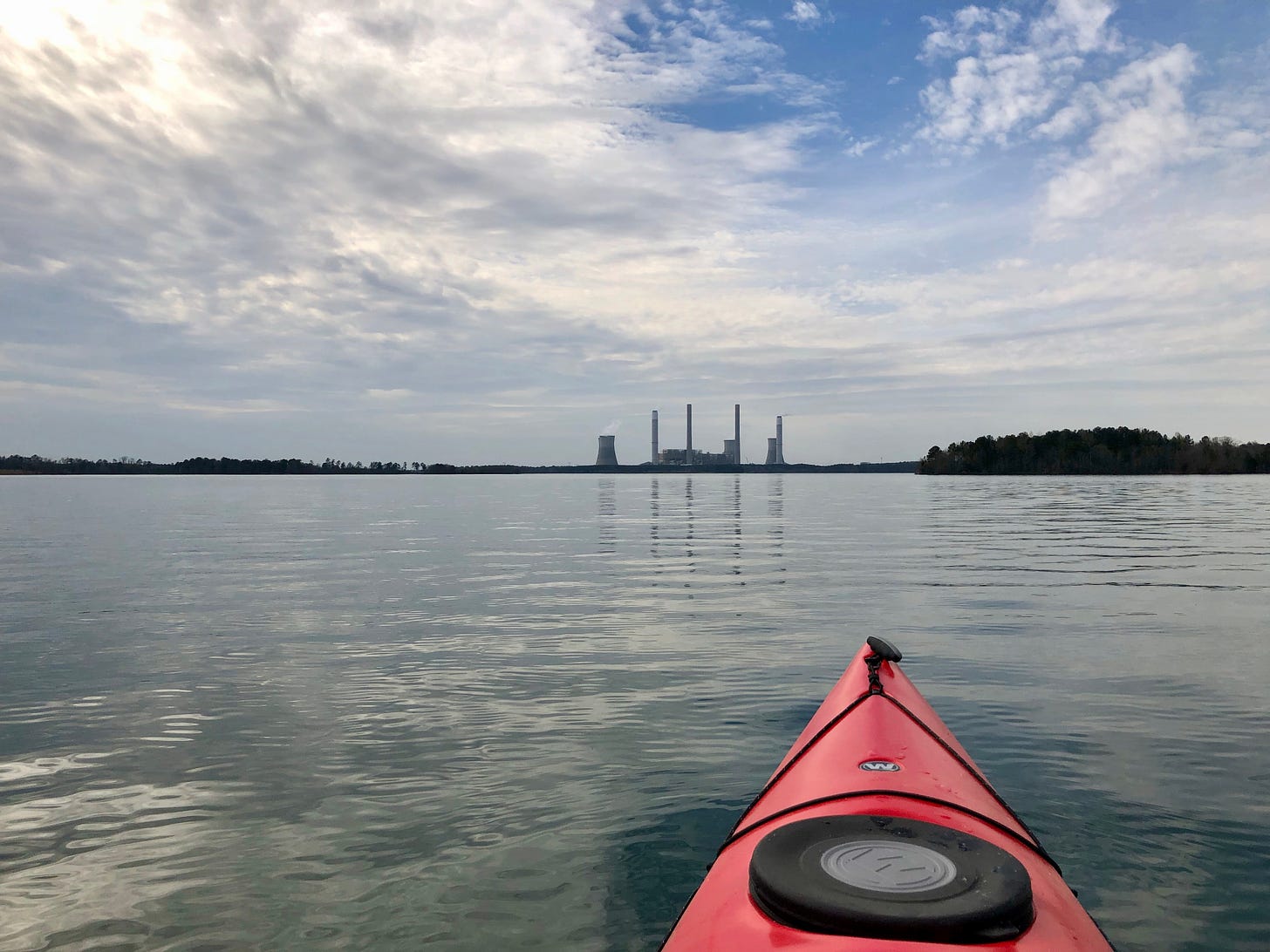Lake Juliette is a peaceful part of the state. About fifteen minutes from my house, I take my kayak out regularly to paddle the water. There are no fast boats on the placid water. It is mostly people practicing scuba diving, fishermen, and kayakers like me.
Looming in the back of the lake is one of the biggest coal plants in the United States, Plant Scherer. Operated by Georgia Power, it is one of the most efficient plants in the nation and is constantly under attack from environmentalists.

Right now, it is also under attack from the community of Juliette that exists in the shadow of the plant. Anyone who has seen the 1991 movie Fried Green Tomatoes has seen Juliette. The movie used Juliette’s Whistle Stop Cafe as center stage for the movie.
Several years ago, the residents in the area found uranium in their water wells. The area has a high concentration of people with various cancers and ailments. At first, people suspected Georgia Power was to blame for radon and uranium. But it turns out the area, in the piedmont region of Georgia, has uranium under the granite slab that comes down from Atlanta. Deep wells cause radon in the area.
Now, several years removed from that, residents are finding chromium in their water. Some tests show chromium at 10 parts per billion in the water. The EPA says anything less than 100 parts per billion is acceptable. California set a 10 parts per billion standard only to see its Supreme Court raise their standard.
Some research suggests the chromium is as natural in the piedmont region as uranium and radon. But chromium could also come from unlined coal ash ponds polluting the groundwater. There just so happens to be one in Plant Scherer. Residents are demanding action from the state legislature. Georgia Power says it is closing the coal ash pond and draining water from it. Residents and activists are not placated and are demanding more action.
Democrats in the state legislature are seizing on the issue as a wedge to hurt Republicans. The media is covering it. Several outside activist groups continue to raise attention and demand action.
But there remains the unresolved question of whether the chromium is naturally occurring or from Georgia Power. There’s also the question of how best to deal with the issue.
Back in the late ’80s, Monroe County where the area is wanted to run pipes and provide water. The residents of Juliette insisted they had good well water and were fine. Now, as the county reconsiders running pipes to provide municipal water and the costs, the residents need help, Georgia Power is a scapegoat, and the state legislature is racing to solve a problem without fully understanding everything involved.
I spoke to a resident of Juliette, Georgia and also to John Kraft of Georgia Power to get both sides of the story. You can listen to the audio above.













Share this post